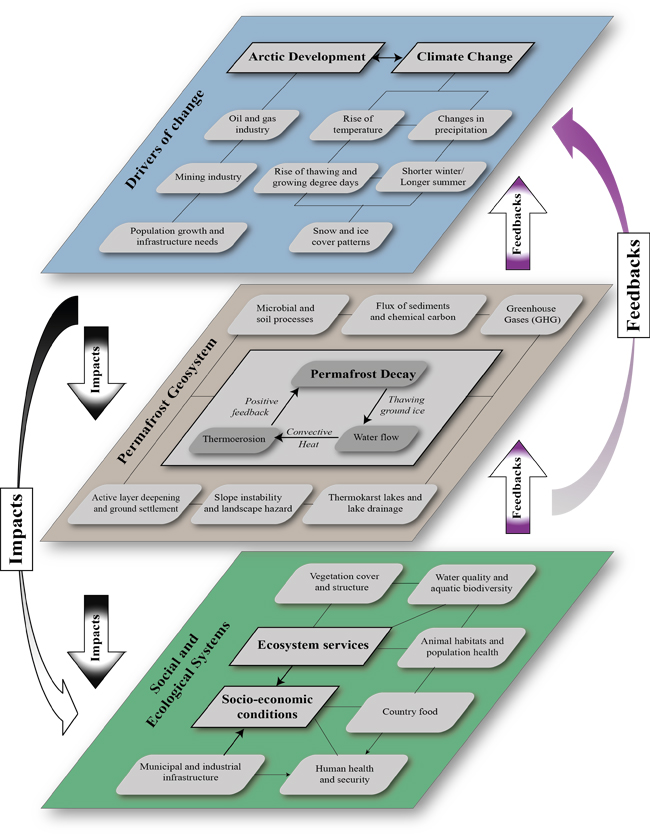Program / Introduction
Introduction
The central hypothesis that will be tested in this research is that liquid water (and the transformation from solid ice) plays a dominant role in driving heat, sediment, carbon and microbial transport in permafrost systems. Work over the last few decades in this field has typically placed emphasis on sensible and radiative heat transfer from the atmosphere to soils, but our observations on eroding permafrost landscapes and failing infrastructure (e.g., runways, roads and building foundations) suggest that liquid water and its dynamic transport effects have been vastly underestimated. If supported, this hypothesis would require transforming the way we think about and manage permafrost systems in the fast-changing cryosphere. In ADAPT's broader integrative view of permafrost, we need to understand and predict the thresholds, non-linear feedbacks and consequences of the northern Earth system now moving to a higher energy state, with liquid water flow through a much deeper active layer, faster kinetics of all geo-ecosystem processes, and more dynamic interactions, both locally and with the global environment. This research program comprises research projects on complementary aspects of permafrost-based landscapes and ecosystems (geo-ecosystems) related to the central hypothesis. ADAPT is organized as four interlocking research modules to address a broad, representative spectrum of natural science and engineering issues within the Integrated Permafrost Systems framework.







